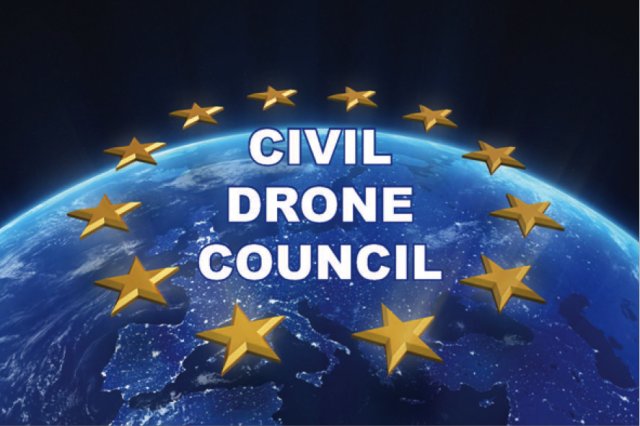 A significant number of countries in the European Union (EU), as well as in countries outside the EU, currently do not have a structure uniting the principal entities [governmental (regulatory & non-regulatory) & industrial (including micro, small & medium-sized companies)] that are part of its national drone community. In most countries, the various stakeholder groups have no formal transversal communication between them and operate in isolation from each other. No national drone association has succeeded in creating a truly federated national approach.
A significant number of countries in the European Union (EU), as well as in countries outside the EU, currently do not have a structure uniting the principal entities [governmental (regulatory & non-regulatory) & industrial (including micro, small & medium-sized companies)] that are part of its national drone community. In most countries, the various stakeholder groups have no formal transversal communication between them and operate in isolation from each other. No national drone association has succeeded in creating a truly federated national approach.
In most countries the national drone associations have a lack of funding, and consequently do not have the financial means to employ the dedicated personnel required to stay informed on what is going on at an European level, let alone contribute to European harmonization efforts. This situation is further exacerbated by the fact that most current drone community members are micro and small- & medium-sized enterprises (SMEs), which do not have the time, personnel, language skills, nor the financial means, to actively participate in European working groups.
This situation is not conductive to forging understanding between the various national drone community members, does not permit to identify the required national industry challenges & opportunities, nor to define, prioritize & initiate required technology developments, which makes it extremely difficult to formulate a comprehensive national drone strategy.
The use of civil drones is finding many applications in multiple market sectors. Drones integrate multiple innovative technologies and will catalyse the adaption and development of additional technologies, which stand to revolutionize aviation. However, drones also raise aerospace integration, security and public acceptance challenges.
Several countries have recognized the potential of drones relative to job creation, economic growth, and creating societal benefits, and have initiated national initiatives that bring the various members of their national drone community together [e.g. Japan UAS Industry Development Association – 2015 (chaired by Prof. Senji Suzuki, University of Tokyo); the FAA’s Drone Advisory Committee – 2016 (chaired by Brian Krzanich, Intel)].
In this context, it is of interest to note that similar efforts are being deployed in Europe. A 6-page document detailing the Civil Drone Council situation in Europe (France & Benelux), supplying generic information on what a Civil Drone Council is and the functions it can fulfil, can be found on & downloaded from www.rps-info.com (see « Europe » in the main menu bar) & www.rpas-regulations.com (see « Community Info » in the main menu bar).
For additional information contact Peter van Blyenburgh at pvb@rps-info.com
